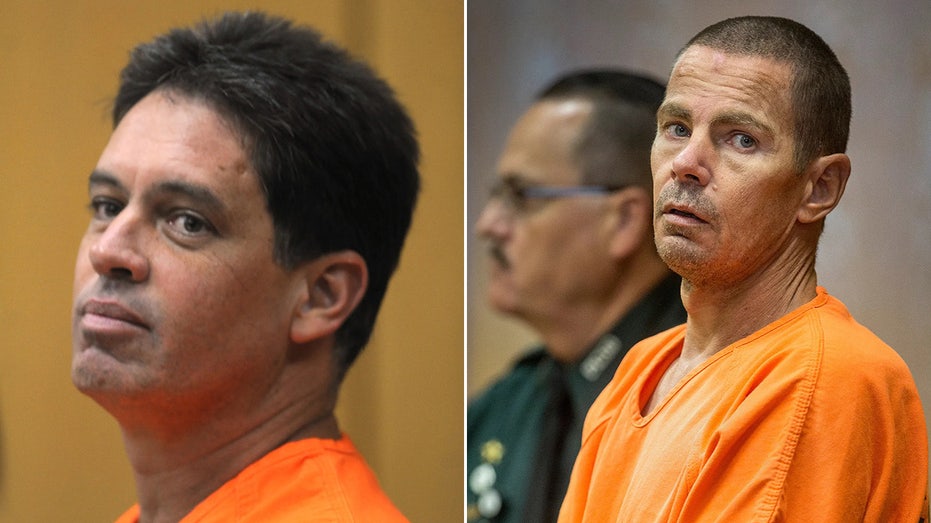Man Who Spent 36 Years In Prison for Wife’s Murder Forgives Confessed Killer in Rare Reconciliation
Pulitzer winner Gilbert King delves into the chilling case of Leo and Michelle Schofield in his gripping true-crime podcast "Bone Valley."

Leo Schofield's story took a dramatic new turn in January 2025, when he and his daughter Ashley survived a serious motorcycle accident—just months after his release on parole following 36 years behind bars for the murder of his wife, Michelle. Schofield had always steadfastly maintained his innocence, and his decades-long legal battle has drawn national attention, especially as new evidence and confessions have come to light.
Schofield’s journey toward public vindication began gaining momentum after his April 2024 parole. It reached an emotional crescendo when Gilbert King, a Pulitzer Prize-winning author who had been investigating the case, visited Schofield during his recovery from the crash. In a twist that stunned all involved, King received a call from Jeremy Scott—the convicted felon who, in 2017, confessed under oath to killing Michelle Schofield. Scott remains incarcerated for an unrelated crime, but his connection to the Schofield case has become a central focus in efforts to overturn Leo’s conviction.
The conversation that followed between Schofield and Scott, facilitated by King, was nothing short of extraordinary. After years of wrestling with the devastation wrought by his wrongful conviction, Schofield found it within himself to offer Scott forgiveness—a moment born out of deep reflection and spiritual growth during his decades in prison. “I want you to know that I forgive you with all my heart,” Schofield told Scott, “and I thank you for telling the truth. It changed my life.” The exchange left both men silent and emotional, underscoring the profound human cost paid by everyone touched by the tragedy.
For Schofield, faith played a critical role in surviving the years of anger, bitterness, and confusion that followed Michelle’s murder and his subsequent imprisonment. During the long years behind bars, he embraced spirituality, became a respected pastor to fellow inmates, and eventually found love again, marrying Crissie Carter, a social worker, in 1995. Those close to Schofield say his commitment to faith and forgiveness is a testament to his character and resilience.
The circumstances that led to Schofield’s conviction remain deeply troubling to advocates and legal experts. Michelle Schofield vanished in February 1987, last seen leaving work at a restaurant in Lakeland, Florida. Days later, her car was discovered abandoned near the city’s outskirts, and her body—bearing 26 stab wounds—was recovered from a drainage canal. Despite the absence of any physical evidence tying him to the crime, Schofield quickly became the prime suspect. Testimonies about alleged marital discord and circumstantial observations tipped the scales against him during his 1989 trial, where he was sentenced to life in prison.
A critical detail overlooked at the time would come to haunt investigators: among the evidence collected was a set of fingerprints from Michelle’s car, which did not match Schofield or his late wife. Advances in forensic science finally provided a break in 2004, conclusively matching those prints to Jeremy Scott, who lived just miles from where Michelle’s body was discovered. While Scott initially denied involvement in the murder, he later wrote a confession admitting he had killed Michelle—insisting Schofield was innocent and expressing deep remorse for the suffering caused.
Despite Scott’s repeated confessions and corroborating evidence, state authorities have yet to bring additional charges against him for Michelle’s murder, and Schofield’s conviction remains upheld by multiple courts. Polk County officials continue to defend the original verdict, while Schofield’s legal team presses ahead with efforts to secure a full exoneration. If unsuccessful, Schofield faces the prospect of remaining on parole for several more years.
Schofield’s integrity has kept him from accepting plea deals that would have secured his freedom earlier, remaining unwavering in his claim of innocence even when freedom was within reach. “It’s easier for me to serve time than it is for me to admit something I didn’t do,” he has said. Now, with powerful advocates and fresh scrutiny trained on his case, hope grows that Schofield may yet clear his name—potentially rewriting the final chapter of one of Florida’s most haunting true-crime sagas.




